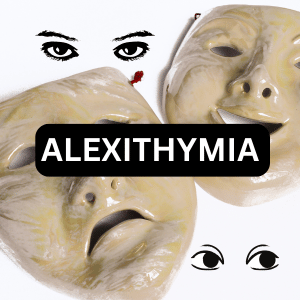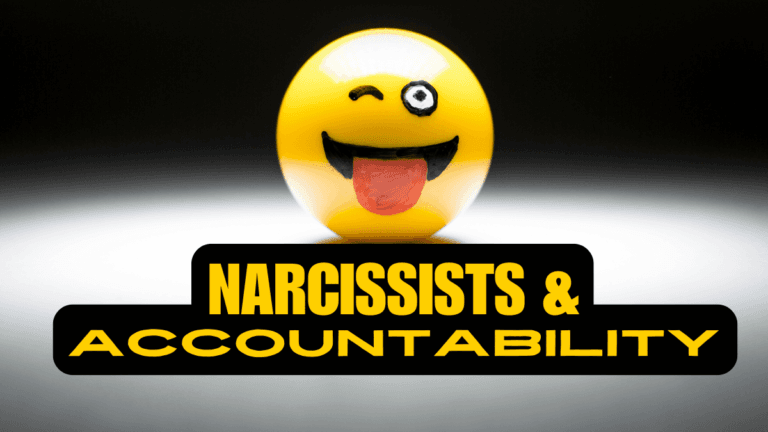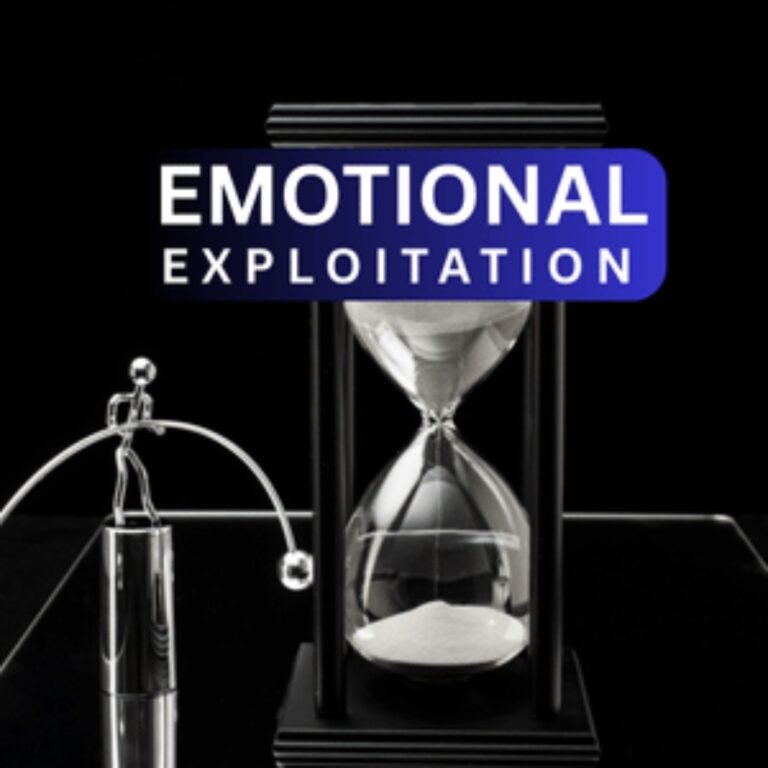How Cultural Conditioning Suppresses Emotion, Undermines Intimacy, and Perpetuates Psychological Harm
Alexithymia: Is this happening in your relationship?
The following is a brief section of our transcript of our podcast episode – Narcissistic Abuse Recovery Podcast. Get the full episode here.
Host: Lynn
Follow our work beyond the podcast: We publish essays and insights on Medium through our Moving Forward with Hope publication, and you can also find additional content and community updates on our Substack. Join us there to go deeper, connect with others, and support the movement.
Lynn is a heartfelt advocate for personal growth and empowerment, and writes with raw insight on navigating narcissistic abuse, toxic relationships, and sometimes the societal challenges tied to the patriarchy. With a deeply experiential approach, her stories shed light on the emotional complexities of breaking free from toxic patterns and reclaiming one’s voice. L.N. offers fresh perspectives on gender dynamics, self-worth, and healing, encouraging readers to rebuild from within and revolutionize their relationships.
Lynn is also a trauma-informed narcissistic abuse recovery coach and podcast host. She creates videos on her YouTube channel to bring the message of healing and recovery. Learn more on her website here.
There’s a quiet crisis playing out all around us. It doesn’t shout, but it echoes — in broken relationships, misunderstood silence, and generations of emotional confusion.
There’s a quiet crisis playing out all around us. It doesn’t shout, but it echoes — in broken relationships, misunderstood silence, and generations of emotional confusion.
It’s not about a lack of emotions. It’s about the absence of a roadmap to express them.
Alexithymia affects millions — especially men. And what happens next? Partners feel isolated. Intimacy erodes. Silence speaks louder than connection.
In This Episode
Today, in this episode, we’re untangling the emotional mechanics behind alexithymia …— what it is, how it forms, and why it matters… — especially for survivors of narcissistic abuse. We’ll follow the thread from misunderstood psychology to patriarchal conditioning and explore how these invisible forces shape emotionally barren relationships… Whether it shows up as blank stares during conflict or years of feeling unseen, we’ll lay it bare… This conversation isn’t about blame — it’s about insight, self-respect, healing, and reclaiming emotional truth… And yes, we’ll challenge the old rules with clarity, compassion… and just enough edge to keep things interesting.
And on a side note, I want to thank all of our recent subscribers and followers of our podcast. Welcome.
Alexithymia
Alexithymia sounds clinical — like the kind of diagnosis scribbled at the bottom of a psychiatrist’s notepad. But its reality? Quiet. Confusing. Deeply human.
It’s the experience of feeling something — physically, emotionally — but being unable to identify or articulate it. Not because you’re cold-hearted. Not because you’re broken. Because somewhere along the way, you weren’t given the tools to translate your emotional world into language.
People with alexithymia might say:
- “I don’t know what I’m feeling.”
- “I can’t tell if I’m sad or just tired.”
- “I get overwhelmed but I don’t know why.”
And this emotional blind spot isn’t rare. Studies published in BMC Psychiatry estimate that roughly 10% of the general population experiences alexithymia — and rates are higher in men.
But here’s the kicker: it’s not an emotion deficit. It’s an emotion language barrier.
Alexithymia is often linked to:
- Early emotional neglect
- Lack of modeling emotional vocabulary in childhood
- Trauma or chronic invalidation during key developmental years
🌀 It’s like growing up in a home where everyone’s speaking feelings… but you were never taught the dialect.
In clinical settings, it’s described as having trouble:
- Distinguishing between emotional states
- Describing your internal experience
- Even connecting physical sensations to emotional meaning (like stomach tension as anxiety)
And if you’re thinking, “That sounds familiar,” you’re not alone.
Before we get into it more, do you want the truth without all the noise?
I’d thought you’d say so…
Right now, you can join our private Supercast feed at a special introductory offer—but this won’t last.
This is your ad-free space for unfiltered content and uninterrupted podcasting. No distractions. No more digital clutter. Just you, and the deliberate clarity you deserve.
Whether you’re recovering from narcissistic abuse, confronting emotional manipulation, or finally unlearning what the system taught you to accept—this private feed was made for you…
You’ll get…
100% Ad-Free Listening—every episode, start to finish
Seamless immersion in your healing and growth..
Direct access to the content that speaks to you, not around you
This early access pricing is just for our core community—subscribers and followers who’ve been here doing the work…
Reclaim your time. Reclaim your focus. Reclaim your power—one episode at a time.
Join us on Supercast! Our Private Feed
We elected to go to a private feed in addition to our regular feed since our subject matter may be a sensitive topic on some of the topics we addressed. If you are a listener to our show, I am sure you understand what we are saying here.
You can find us at narcissistic abuse recovery dot supercast dot com or follow the link in the show notes…
How it ties into Narcissistic Abuse
Alexithymia often acts as emotional camouflage in narcissistic abuse — the inability to name or express feelings makes it easier to detach, deflect, or deny emotional responsibility. When patriarchal conditioning discourages vulnerability, it creates a perfect storm: a partner who doesn’t just avoid emotional intimacy, but genuinely can’t access it — leaving survivors trapped in relational confusion, emotional starvation, and chronic self-doubt.
When emotional expression becomes taboo, and vulnerability is framed as weakness — not humanity — you end up with partners who don’t just refuse to engage emotionally… they can’t. That’s the twisted legacy of patriarchal conditioning: it doesn’t just silence men, it erodes intimacy. It creates emotionally barren relationships where survivors are blamed for wanting connection and punished for asking for more.
So let’s look deeper at the roots of this silence. Because if we want to understand how alexithymia forms and how it intersects with narcissistic abuse, we have to look at the system that teaches men to disconnect.
Our Mission
If you are new to our podcast, welcome. We have many new subscribers. Since Episode 69, The Narcissistic Abuse Recovery Podcast has been fearlessly deconstructing the patriarchal systems that silence, shrink, and shame. We go beyond surface conversations, unraveling taboos, challenging outdated norms, and opening doors to topics so often labeled off-limits. Each episode invites you into bold, nuanced dialogue that validates lived experiences and empowers collective truth-telling.
If you are ready to explore the deeper layers and follow the questions others will not ask, you are in the right place.
Our Purpose
This podcast exists to expose and challenge the systems that diminish, control, and silence. We focus on what has been overlooked, question what has been normalized, and create space for healing, clarity, and collective strength.
We serve as a resource of hope, encouragement, and validation, so victims of narcissistic abuse can rebuild their lives and pursue dreams, visions, and intentional living.
Alexithymia Alexithymia Alexithymia Alexithymia
Additional Reading and Sources
🧠 Alexithymia & Mental Health
- BMC Psychiatry – Alexithymia and interpersonal problems
- BMC Psychiatry – Alexithymia in personality disorders (PDF)
- JETIR – The Impact of Patriarchy on Women’s Mental Health and Well-being (PDF)
❤️ Alexithymia in Relationships
- Springer – Couple Satisfaction & Alexithymia
- Journal of Family Issues – Alexithymia, Fear of Intimacy & Relationship Satisfaction (PDF)
- APA PsycNet – Alexithymia & Relationship Satisfaction
- Academia.edu – Meta-analysis on Alexithymia & Marital Satisfaction
- Relationships and More – Impact of Alexithymia in Relationships
Related: Covert Sabotage






